
The Petrach Program on Ukraine specializes in researching contemporary Ukrainian politics, society, and culture. It was created in the mid-1990’s with the Petrach Endowment for Ukrainian Studies and experienced tremendous growth with the creation of the Elliott School Fund for Scholars Affected by the War in Ukraine, launched in Spring 2022 as an answer to Russia’s invasion of Ukraine. Today, IERES offers multiple opportunities for research on Ukraine and for Ukrainian scholars to study contemporary Ukraine and its place on the international scene.
Call for Applications: Ukrainian Studies Fellows
The Institute for European, Russian, and Eurasian Studies (IERES) is calling for applications for three fellowship opportunities offered through the Elliott School’s Fund for Scholars Affected by the War in Ukraine and in partnership with the Kyiv School of Economics and the Ukrainian Global University.
These opportunities are open to scholars who are based in Ukraine or were based there before February 24, 2022. The deadline to apply is Friday, March 1, 2024. You can find more information, including the application forms, here: https://conta.cc/49526WD.
Events
Decolonizing Ukrainian Culture: The Role of Art Institutions in Wartime
Thursday, May 11, 2023
10:00 am – 11:00 am
Voesar Conference Room (Elliott School of International Affairs, Suite 412)
This is a hybrid event- we encourage you to join us in-person at the Elliott School for International Affairs, but you can also join online through this Zoom link.
In this lecture, Dr. Svitlana Biedarieva will explore how the Russian war against Ukraine has affected institutional development in the Ukrainian cultural sector, with particular attention to changes in art organizations. She will discuss the war’s impact on culture, which triggered decolonization processes in Ukraine at all institutional levels, from private grassroots initiatives to non-profits and state-funded public institutions. After eight years of partial occupation of Ukrainian territories by Russia and tense hybrid war, the outbreak of the full-scale invasion of Ukraine by Russia on February 24th, 2022 further fueled decolonization processes. Dr. Biedarieva will address institutional transformation as the key to decolonization, and analyze how Ukrainian art organizations are working to dismantle historically entangled narratives and contribute to the establishment of a new epistemological basis.
Dr. Oleksandra Keudel: What Makes Ukraine Resilient in the Asymmetric War? A Study of Local Governments’ Emergency Responses
Tuesday, January 17, 2023
9:00 am – 10:00 am
Ukraine has demonstrated strong resilience in the face of the full-scale Russian invasion since February 24, 2022. Local authorities in particular continue to provide public services and respond to crises arising from massive internal displacement and Russian attacks on critical civilian infrastructure and housing. This study illuminates how local authorities ensure the effectiveness and legitimacy of their emergency responses using elements of collaborative governance. The findings challenge conventional security thinking confined to military terms. Instead, they highlight the importance of a collaborative approach to managing complex crises. New thinking about national security should include network-based instead of hierarchy-based approaches and partnership-oriented instead of client-service-oriented philosophy in citizen-state relations. The study is based on an original survey of 241 local authorities, interviews and focus groups with public officials at the local and regional levels, and is co-authored with Oksana Huss (Bologna University).
Ukrainian Fellows Seminar: Dr. Sergii Pakhomenko on Historical Narratives in Russian Propaganda – The Ukrainian Case (email ckdonovan@gwu.edu for the link to attend)
Wednesday, January 18, 2023
10:00 am – 11:00 am
Dr. Kateryna Ruban: Women’s Emancipation in Doctors’ Hands: A New Short History of Abortion in the USSR
Monday, January 23, 2023
11:00 am – 12:00pm
Once women in the USSR were to join the workforce and become equal to men in social and economic terms, their decision to reproduce was supposed to be responsible and rational. Yet how were they to combine being workers and mothers, and what level of control could they have over their bodies? These questions were fiercely disputed, and no single answer was ever agreed on. In her study, Ruban explores the role of doctors in the Soviet-proclaimed emancipation of women through a microhistory of a hospital in Transcarpathia (Western Ukraine) in the 1950s–1960s. Looking at early Soviet public debates and at how abortions were performed in this postwar provincial hospital, Ruban argues that abortion was not only a social and demographic issue, therefore, challenging the view of the Soviet Union as pronatalist from the beginning until the end. Despite concerns about the harm caused by the procedure, many doctors saw their patients as political subjects who had the right to decide their own maternity. This was possible because of their professional autonomy, even during Stalinism when access to abortion was severely restricted.
Volodymyr Rafeyenko: Songs about Death and Love – November 3rd, 2022
A discussion with acclaimed Ukrainian writer Volodymyr Rafayenko about his novel Mondegreen, the impact of the war on his literature, and his language journey from Russian to Ukrainian.
Cultural and Heritage-Led Postwar Reconstruction of Donbas – November 8th, 2022
Roundtable discussion addressing the post-war reconstruction of Donbas, focusing on the transformational role of culture and heritage. How can we apply what we learned from the experience of post-2014 reconstruction to post-2022 reconstruction? What are the shortcomings of international aid projects, and how can they engage local initiatives and focus more on institution-building? How should culture, heritage, and collective memory be considered when developing a reintegration and post-war reconstruction strategy?
Winter Worries – Impending Concerns for Ukraine’s Civilians – November 14th, 2022
In his talk, Amb. Speckhard shared his eyewitness accounts on the lay of the land, the challenges ahead, and pressing needs as winter approaches.
Eurodonbas Film Screening and Discussion – November 14th, 2022
Screening of “Eurodonbas” followed by a Q&A with Director Kornii Hrytsiuk and Producer Anna Palenchuk
PONARS Eurasia Fall Policy Conference – September 30th, 2022
The PONARS Eurasia Fall Policy Conference convenes international experts from North America, Russia, Ukraine, and other parts of Eurasia for a series of panel discussions. This hybrid event offers an opportunity to hear from experts on important shifts in international affairs both locally and globally in response to Russia’s full-scale invasion of Ukraine.
Ukrainathon – March 16th – 17th 2022
A 24-hour educational marathon to support Ukraine and donations for displaced Ukrainian scholars.
PONARS Eurasia Spring Policy Conference – March 25th, 2022
All-day conference exploring “Domestic Politics in the Shadow of Russia’s Invasion of Ukraine”
Impact of Russia’s War on Ukraine Energy on European and Transatlantic Energy Policy – May 11, 2022
Russia’s war on Ukraine has sent countries reliant on Russian oil and gas scrambling to find alternative sources—not least because every euro or dollar that goes to Russia helps fuel its ongoing assault on its neighbor. Accessing alternative energy sources is not an easy or quickly-resolved task. Join us as three experts examine European and transatlantic energy policy responses since Russia launched its February 2022 invasion of Ukraine and assess future policy options for Europe and for transatlantic relations.
Meet Our 2023-2024 Petrach Ukraine Studies Fellows
IERES hosts residential and non-residential fellows as part of its Petrach Ukraine Studies Fellowship. This year, we are thrilled to present a strong line up of fellows researching contemporary Ukrainian politics, society, and culture. Scroll down to meet this year’s cohort, and click here to meet our former fellows.
Resident Fellows
Oleksandr Fisun – Senior Fellow (Fall 2023)
Oleksandr Fisun is a professor of political science and the department head at the V.N. Karazin Kharkiv National University in Ukraine (B.A. with Highest Honors in Political Economy, 1987; C.Sc. in Philosophical Sciences, 1990; D.Sc. habil in Political Science, 2009). His research interests concentrate on Ukrainian and post-Soviet politics. During the past ten years, he has held visiting fellowships at the Ellison Center for Russian, East European, & Central Asian Studies at the University of Washington (Seattle); the Canadian Institute of Ukrainian Studies at the University of Alberta (Edmonton); the Aleksanteri Institute at the University of Helsinki; the Wilson Center’s Kennan Institute; the Netherlands Institute for Advanced Study in the Humanities and Social Sciences (Amsterdam); the Centre for European, Russian, and Eurasian Studies at the University of Toronto; the Polish Institute of Advanced Studies (Warsaw), and the Ukrainian Research Institute at Harvard University. His publications include “Democracy, Neopatrimonialism, and Global Transformations” (Kharkiv, 2006) and numerous book chapters and articles on comparative democratization, informal politics, neopatrimonialism, and regime change in Ukraine and post-Soviet Eurasia. He serves as President of the “Observatory of Democracy” policy research center in Kharkiv, which he founded in 2016 with a group of political experts to improve democratic accountability, civic activism, free and fair elections, and citizen awareness in eastern frontline Ukrainian regions. During his fellowship, Dr. Oleksandr Fisun will work on his research project, “The Puzzle of Ukrainian Democracy: Presidents, Oligarchs and Informal Politics after the Euromaidan Revolution.”
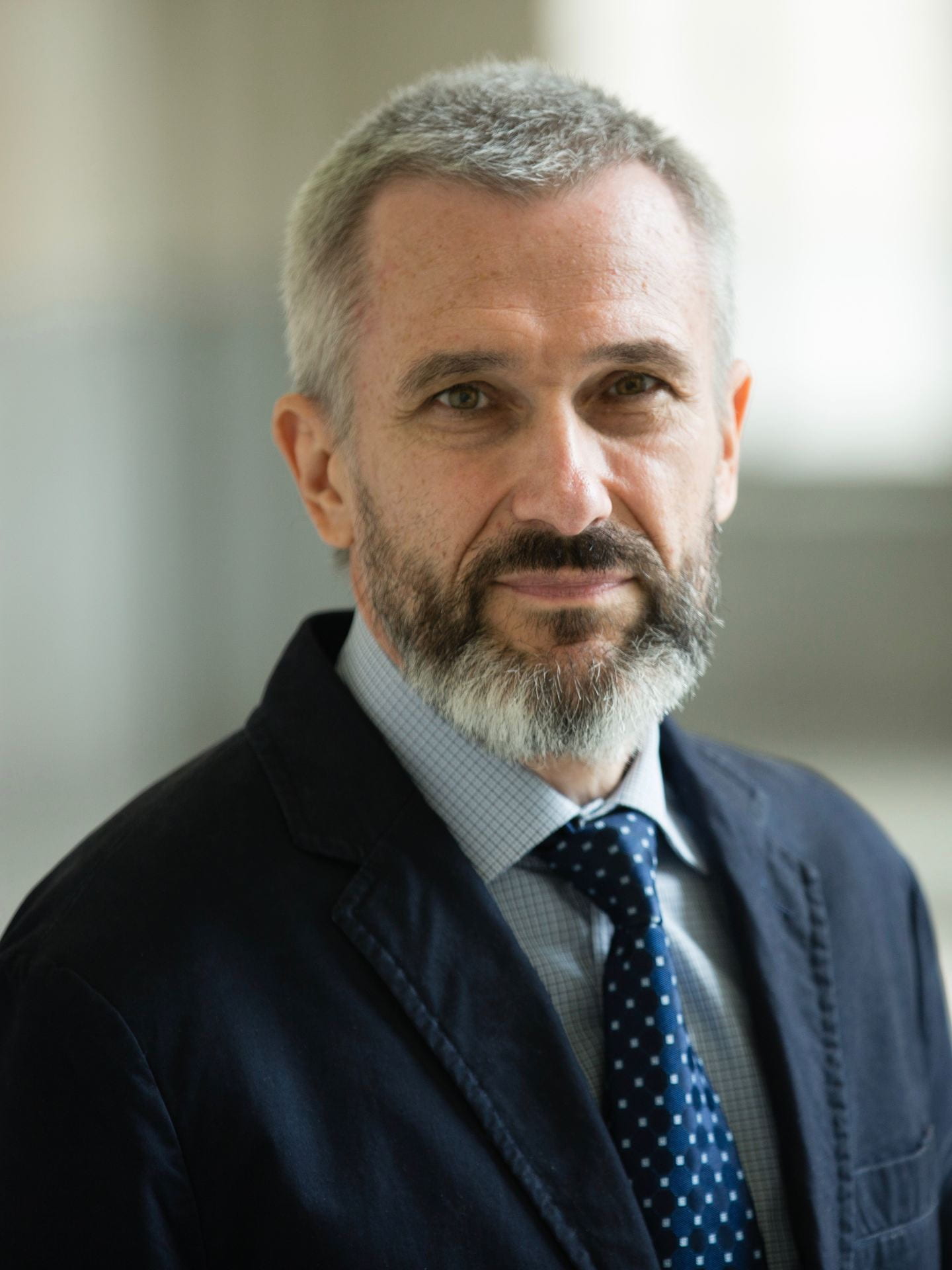
Uliana Movchan – Junior Fellow (September 2023-June 2024)
Uliana Movchan is an Associate Professor at the Department of Political Science in V.N. Karazin Kharkiv National University and an expert at the European Expert Association (Kyiv). Her research interests concern the issues of institutional design, peace-building, Ukrainian political system, patronal politics, and power-sharing. She was a Fulbright visiting postgraduate student at the University of California, San Diego and held junior visiting fellowships at the Institute for Human Sciences (IWM) and at the Munk School of Global Affairs at the University of Toronto (funded by Canadian Institute of Ukrainian Studies). In past fellowships at IERES Dr. Movchan worked on a project titled “Power-sharing in the Ukrainian Neopatrimonial State,” which explored types of power-sharing and their possible application to the Ukrainian political system.
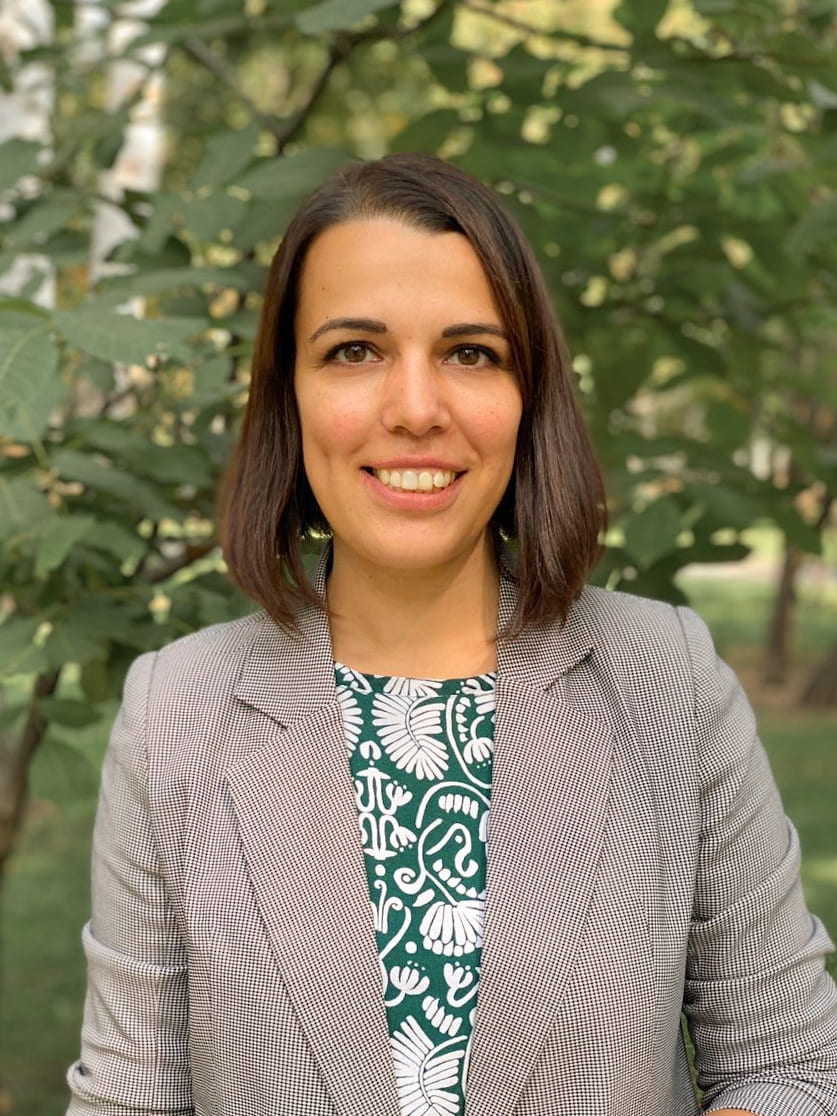
Polina Sinovets – Senior Fellow (Spring 2024)
Polina Sinovets is Head of the Odesa Center for Nonproliferation (OdCNP) and also an Associate Professor in the Faculty of International Relations, Political Science and Sociology at Odesa’s Mechnikov National University, Ukraine. Her expertise is in nuclear history and policy, military history, Ukraine, and Russia. From 2004 to 2012 she was a Senior Research Associate at Ukraine’s National Institute for Strategic Studies. In 2006, she was a Fellow at the James Martin Center for Nonproliferation Studies, a Fellow at the NATO Defense College in Rome in 2015, and a Fulbright Scholar at the James Martin Center for Nonproliferation in 2017 (in Washington, DC). She has published numerous articles on nuclear deterrence, disarmament, missile defense, and nonproliferation in Ukrainian, Russian, and English.
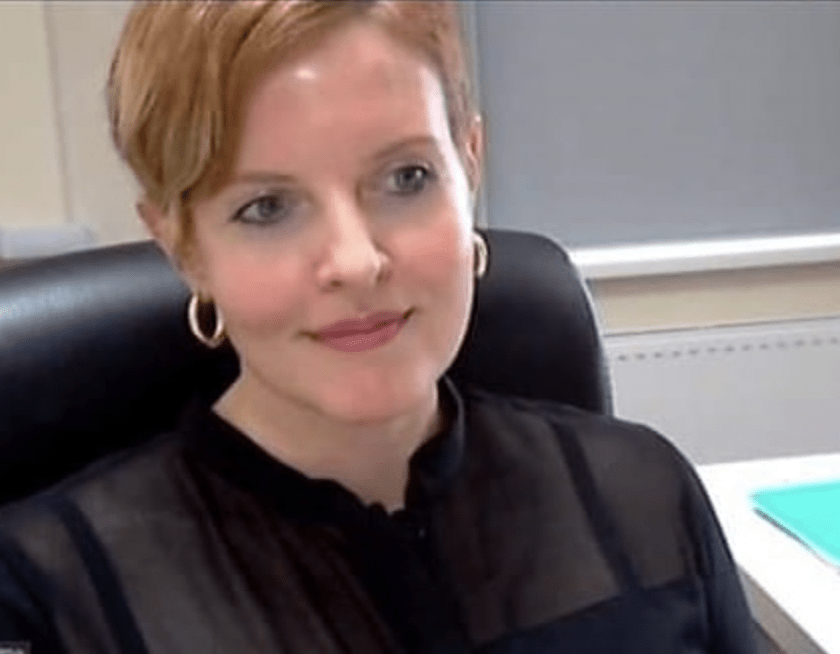
Non-Resident Fellows
Iryna Baltaziuk
Iryna Baltaziuk completed her Doctor of Philosophy study in Theory and History of Art at the National Academy of Fine Arts and Architecture in Kyiv, Ukraine. For the past year, she has been affiliated as a visiting scholar at Indiana University in Bloomington (USA), as part of the nonresidential program. In 2022, with the support of a scholarship from the Ukrainian Cultural Foundation, Iryna published the book “Portrait archive: the war diary” dedicated to her personal experience of life in the war. She has been honored with awards and grants, including Bösenberg-Foundation prize (2023), Ukrainian Cultural Foundation stipend (2022), “Jam Factory” Art Center Grant (2022), “PEN America” Foundation grant (2022), Ukraine President grant (2019), Kyiv Mayor Award for special achievements of youth in the development of the capital of Ukraine (2018), Diploma of International academy of the rating technologies and sociology “Golden Fortune” (2018 and 2016) and more. Her main research interests are in the study of the language of symbols in works of modern art and cover several related disciplines such as visual communication, lexicon of modern art, interpretation of artworks, modifications of universal symbols on national ground and more.
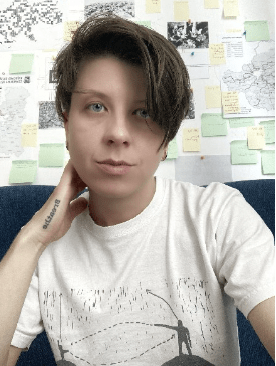
Olena Bordilovska
Olena Bordilovska has been a Senior Researcher at the National Institute for Strategic Studies, Kyiv under the President of Ukraine since September 2022. She is also a part-time lecturer at Kyiv National Taras Shevchenko University (Institute of International Relations, Indologist Department). From 2019-2022 she served as Second Secretary at the Embassy of Ukraine in the Islamic Republic of Pakistan, where she was responsible for humanitarian cooperation, culture and information. Prior to that she was on the staff of the Institute of International Relations Kyiv Taras Shevchenko National University, Department of International Relations and Foreign Policy, where she specialized on South Asia in Global Affairs and the “Asian Century” as a current trend in international affairs. She has been a visiting lecturer at Jawaharlal Nehru University, India (2005, 2007), Jagiellonian university, Poland (2013), American University in Bosnia and Herzegovina (2015), Qaid-e-Azam University, Islamabad, Pakistan (2017), and Manipal Academy of Higher Education (university), India (2018).
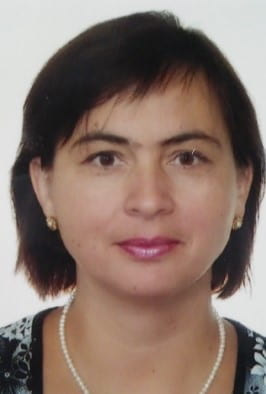
Vitalii Lebediuk
Vitalii Lebediuk is an Associate Professor at the Department of National Security and Political Science and the Director of the School for Political Analysis “Polis” at the National University of Ostroh Academy (Ukraine). He received his PhD in 2012 and is currently studying for the Doctoral (habilitation) program in Political Science at the Ivan Franko National University of Lviv (Ukraine). His research interests include democratization, political parties and party systems, and election systems and voting behavior in Eastern Europe. Since 2010 he has participated in academic mobility programs with several European universities. Dr. Lebediuk was a fellow of the Lane Kirkland Research Scholarship Program at Maria Curie-Sklodowska University (Lublin, Poland). He served as academic coordinator of the Erasmus+ project “European Values and Identity Studies” and coordinator of the program “The Comparative Study of Democratization: Transition Politics in V4 countries and Ukraine” (V4EaP Visegrad University Studies Grant). He is also the academic supervisor of the Eastern Studies double-degree master’s programme of the National University of Ostroh Academy (Ukraine) and the Centre for East European Studies University of Warsaw (Poland). He is the editor-in-chief of a peer-reviewed academic journal “Agora. Social Sciences Journal.” During his fellowship, Dr. Lebediuk will conduct research on “Electoral and Non-Electoral Participation in Ukraine: Do Political Attitudes, Social Class or Religiosity Matter?”
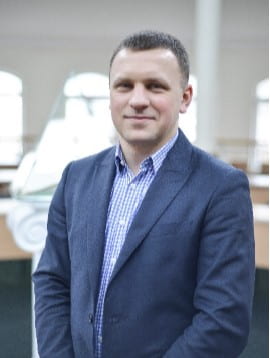
Myroslava Lendel
Myroslava Lendel is the Professor of the Department of the Political Science and Public Administration of Uzhhorod National University, Director of the Research Institute of Central Europe, as well as one of the founders of the Research and Development Center “Borderland” based in Uzhhorod, Ukraine. She focuses on local governance and regionalism in Central Europe, as well as on security in the region, mainly its migration and cross border aspects. Dr. Lendel is the author of several publications on the Europeanization of policy in Ukraine, and its subregional and regional integration. She developed a methodology for the analysis of local political institutions, processes, and cultural orientations of citizens in countries that are undergoing systemic transformation. Past positions include Senior Research Associate of the National Institute of the Strategic Studies (2011-2018), Expert of the East West Institute (1997-2007), Manager of the Carpathian Foundation (1997-2000), team leader of several research and cross border development projects supported by EU programs and other international funds and organizations.
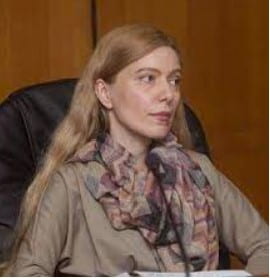
Vitaliy Lytvyn
Vitaliy Lytvyn is Professor at the Department of Political Science of Ivan Franko National University in Lviv, Ukraine. He received his PhD in Political Science in 2010 (with the dissertation “Comparative analysis of government stability in Central European countries and Ukraine”) and ScD in Political Science in 2018 (with the dissertation “Institutional, procedural, political and behavioral attributes and varieties of semi-presidential system of government: comparative analysis on the example of European countries”), both from Ivan Franko National University of Lviv. Dr. Lytvyn specializes in political institutions and systems, party and electoral systems, political regimes, systems of government, semi-presidentialism, inter-institutional relations, and constitutional engineering. He is the author of more than 100 studies, including monographs and has developed numerous academic courses. Dr. Lytvyn also works as an analyst, political scientist and head of research programs at the Center for Political Studies in Ukraine. During his fellowship, he will conduct research devoted to the issues of potential impact of various political systems and institutional designs as specific correlates of war or peace.
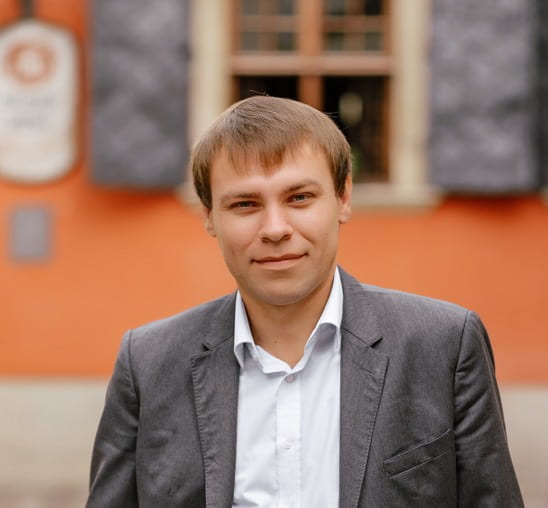
Igor Lyman
Igor Lyman is Doctor of History, Professor, Head of the Department of History and Philosophy, Coordinator of International Relations of Berdyansk State Pedagogical University, Head of the Expert Council of National Agency for Higher Education Quality Assurance (Ukraine), Member of Presidium of NGO “Innovative University,” Support Office. Spheres of research activities: Ukrainian Diaspora, History of International Relations, Regional History (History of the South of Ukraine), Maritime History, Religious History, Social History, Oral History, Urban History, Gender Studies, Historiography, Archeography, History of Education, Modernization of the educational system of Ukraine. He has presented research in Ukraine, Mexico, Turkey, and various countries throughout the European Union. His books and articles have appeared in more than seven languages and over a dozen countries.
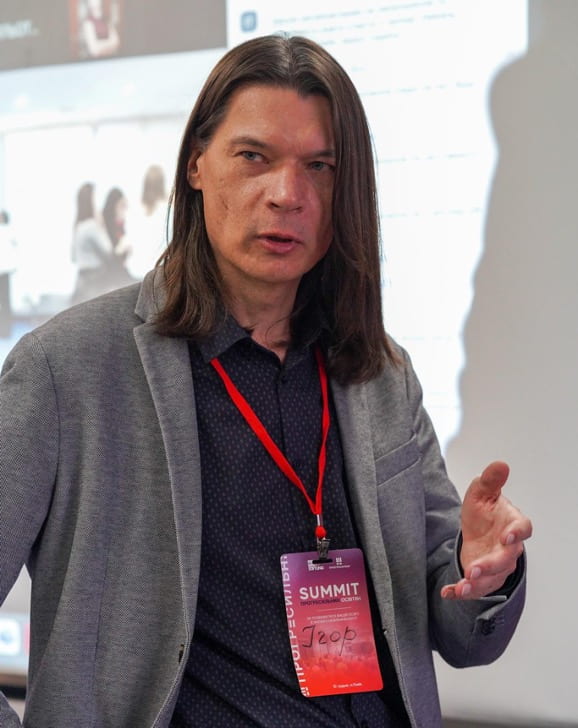
Olena Muradyan
Olena Muradyan is Dean of the School of Sociology (since 2015), an Associate professor (Docent) at Political Sociology Department (since 2013); Candidate of Science in Sociology (Ph.D.) (2011) and Gender Commissioner (since 2022) at V.N.Karazin Kharkiv National University, Kharkiv, Ukraine. Her research focuses on social inequality, gender sociology, social values, political sociology, higher education, urban food policy, international comparative sociological studies.
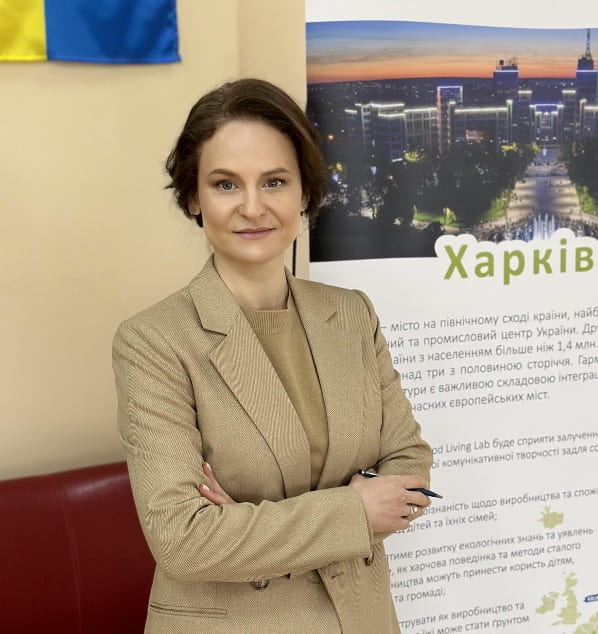
Elmira Muratova
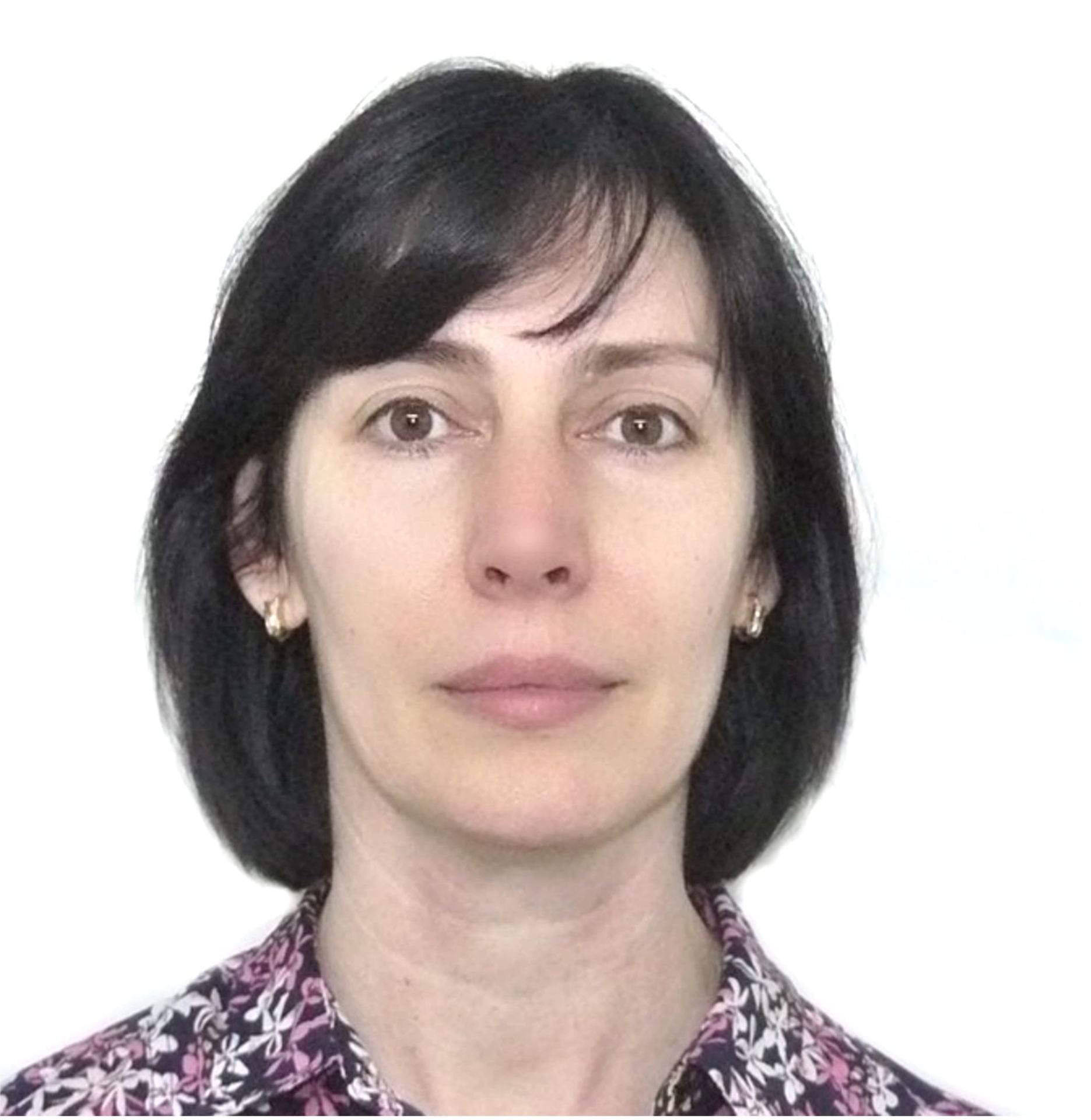
Viktor Stepanenko
Viktor Stepanenko is a Chief Research Fellow at the Institute of Sociology, National Academy of Sciences of Ukraine in Kyiv and Editor-in-chief of the journal “Sociology: Theory, Methods and Marketing” (http://en.stmm.in.ua/). He earned his Ph.D. form the University of Manchester in 1998 and defended the title of Doctor of Science in Sociology at the Institute of Sociology in Kyiv in 2016. His research interests include the issues of post-authoritarian transformation, democratization and of civil society. He is also studying societal and ethno-political problematics in contemporary social theory. Dr. Stepanenko’s recent publications include editing and writing to the books “Ukraine after Euromaidan: Challenges and Hopes” (Bern: Peter Lang, 2015), “Civil society: Discourses and Practices” (Kyiv, 2016) and “COVID-19 pandemics in Ukraine: social consequences” (Kyiv, 2021).

Oleg Yarosh
Oleg Yarosh is an Associate Professor and the Head of the Sector of History of Oriental Philosophy at the Institute of Philosophy of the Ukrainian National Academy of Sciences in Kyiv, Ukraine. His research interests are focused on comparative studies in Intellectual History, Islamic Studies, and the Anthropology of Religion. Dr. Yarosh has actively participated in academic mobility programs including in Denmark, Germany, Poland, Sweden, the US, and the UK. He has published extensively both in Ukraine and abroad on topics such as Islam and Sufism in Ukraine and Central-Eastern Europe, Political Islam, Religious Studies, and Cultural Studies theory. His published works include Mass and Popular Culture: Theories and Practices (co-authored with Taras Luty, Kyiv 2007), Ideology: Matrix of Illusions, Discourses, and Power (co-authored with Taras Luty, Kyiv 2016), and Islam in the Public Sphere: Theories and Social Practices (Kyiv 2020). Dr. Yarosh is a contributor to the book series “Yearbook of Muslims in Europe”, in which he covers Islam and Muslims in Ukraine (Leiden, Brill). During his fellowship, Dr. Yarosh will work on his research project titled “Ukrainian Refugees and Muslim Religious Philanthropy in Poland and Germany.”
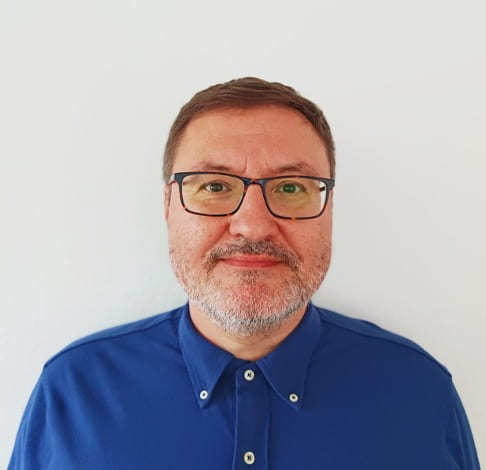
Yaryna Zakalska
Yaryna Zakalska is a leading folklorist at the Folklore and Ethnography Centre of the Educational and Research Institute of Philology of the Taras Shevchenko National University, Kyiv. Her main interests are connected with the folklore of difficult existential social periods. She has studied the folklore of the Revolution of Dignity and the modern Russian-Ukrainian War prior to 2021. During her fellowship, she will be comparing folklore material created after the 2022 full-scale Russian invasion with that of the Ukrainian resistance movements of the 20th century and of the armed struggle of other ethnic groups. Dr. Zakalska received her Ph.D. in Folklore studies in 2021. She has taught at the National Aviation University (Kyiv) and Taras Shevchenko National University of Kyiv (2016-2017, 2020-2021) and has given public lectures at home and abroad, particularly in Lithuania, Poland, Estonia and Austria.
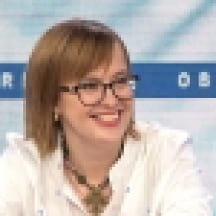
Yuriy B. Zaliznkyak
Yuriy B. Zaliznyak is Associate Professor of Journalism at the Ivan Franko University of Lviv. His journalism career began as an intern, reporter, editor and anchor in local, national and international newsrooms including BBC Ukrainian Service (2002-2003), The Guardian (2003) and Radio Deutsche Welle (2004-2006). His dissertation (2007) was titled “Ethical intellectualism in publicistic writings of Ivan Dziuba and Vaclav Gavel.” His areas of interest include new media, social networks, modern methods of information
manipulation, journalism standards, media ethics, and cognitive warfare. In 2018-2019 he was appointed as a Fulbright Scholar to the US with a project on fake news influence on journalism. He periodically conducts trainings and masterclasses as an expert for the Pypyp Orlyk Institute of Democracy in different cities of Ukraine. Since February 2022 Yuriy Zaliznyak has been a local producer with ABC News covering the unprovoked Russian war against Ukraine.
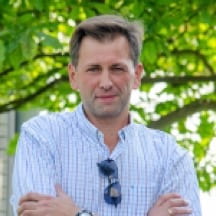
Ruslan Zaporozhchenko
Ruslan Zaporozhchenko is a Senior Lecturer at the Department of Political Sociology, School of Sociology, V.N. Karazin Kharkiv National University. In September 2022 – March 2023, he was a Non-Residential Researcher at The New School for Social Research. He teaches courses in “Political Science”, “Conflict Studies”, “Political Communications”, and “Geopolitical Studies.” His research interests focus on the study of empires and imperialism, social and political space, sociology of power and sociology of ideology, social divisions and cleavages, postcolonial studies, with a special emphasis on Ukraine and the post-Soviet space. His articles and chapters in monographs have been published in Problems of Post-Communism, Ideology and Politics Journal, Soviet and Post-Soviet Politics and Society, and Studia Regionalne i Lokalne, Palgrave Macmillan, Ibidem-Verlag.
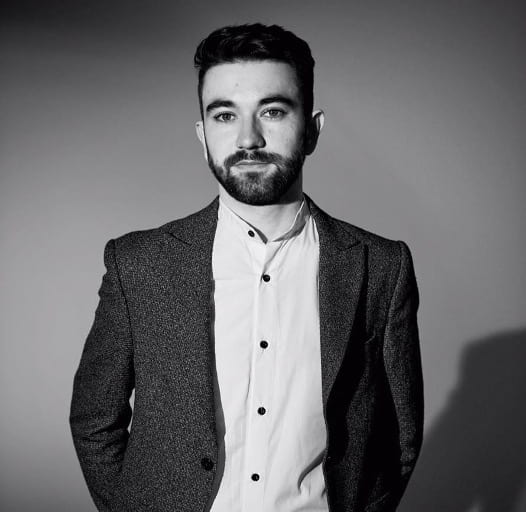

Fellowships and Opportunities
Explore opportunities to work with IERES as a resident or non-resident fellow.
Non-resident Fellowship
The Institute for European, Russian, and Eurasian Studies (IERES) offers a Non-resident Fellowship through the Elliott School’s Fund for Scholars Affected by the War in Ukraine and in partnership with the Ukrainian Global University and the Kyiv School of Economics.
This opportunity is open to scholars who are based in Ukraine or were based there before February 24, 2022.
Duration: 12 months
Timeframe: September 2023 – August 2024
Seats: 12
Funding: $800/month
Who may apply: Ukraine-based university professors or scholars in academic institutions working on any topic related to Ukrainian studies and international affairs are invited to apply. The selected Fellows will stay in Ukraine or wherever they are based currently during their fellowship. All applicants must be proficient in English. Scholars who are currently internally displaced will be given priority.
How to apply: Fill out this online form, which will ask you to attach your CV in English. Selected candidates will be invited for an online interview, conducted in English.
Apply by Friday, February 17, 2023.
Junior Visiting Fellowship
IERES is offering a Junior Visiting Fellowship opportunity open to early career scholars who are based in Ukraine or were based there before February 24, 2022.
Duration: 12 months
Timeframe: September 2022 – August 2023
Seats: 1
Funding: $60,000
Who may apply: Ukraine-based early career scholars who have obtained their PhD within the past 10 years and are working on any topic related to Ukrainian studies and international affairs are invited to apply. The selected Fellow will come to Washington, D.C. for a full year in residence at IERES to conduct their research and participate in our activities and events. The fellow will also be expected to take on limited responsibilities supporting IERES’ Petrach Program on Ukraine activities.
How to apply: Please fill out the online form below and attach your CV, research proposal, and cover letter. Selected candidates will be invited for an online interview, conducted in English.
Apply by Friday, February 17, 2023.
Senior Visiting Fellowship
IERES is offering a Senior Visiting Fellowship opportunity open to scholars who are based in Ukraine or were based there before February 24, 2022.
Duration: One semester (5 months)
Timeframe: Fall 2023 (August through December) OR Spring 2024 (January through May)
Seats: 2 (1 per semester)
Funding: $35,000
Who may apply: Ukraine-based university professors and senior scholars (received PhD 10 or more years agao) working on any topic related to Ukrainian studies and international affairs are invited to apply. The selected Fellows will come to Washington, D.C. for a semester in residence at IERES to conduct their research and participate in our activities and events.
How to apply: Please fill out this online form, which will ask you to attach your CV, research proposal, and cover letter. Selected candidates will be invited for an online interview, conducted in English.
Apply by Friday, February 17, 2023.
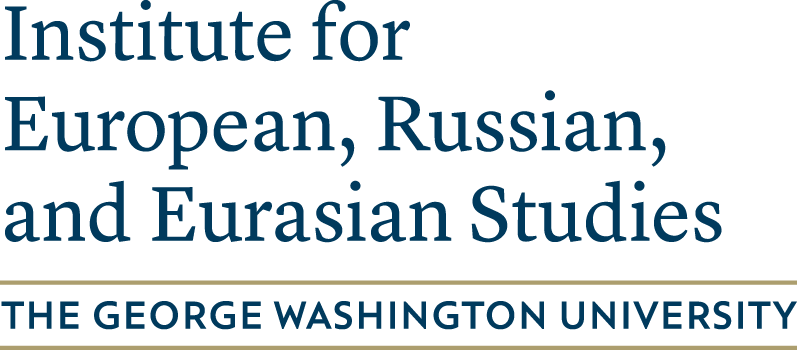
INSTITUTE FOR EUROPEAN, RUSSIAN AND EURASIAN STUDIES
Subscribe to IERES
Receive news and updates about IERES events.
